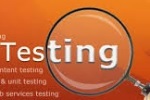We are facing testing times in the UK. Whether the British people vote to “remain” or “leave” the EU today there will be uncertainty and difficulties ahead. It will be interesting – though sometimes I would trade interesting for a period of stability and calm.
Just as art is said to mirror life, the workplace mirrors the wider social, economic and political world. While you can never wholly remove the uncertainty you can take some steps to reduce it, starting with the building of your team.
Recruiting a new employee can be difficult and extremely time consuming, especially if you haven’t got a well thought out recruitment process. There are often concerns about fit and whether or not the candidates are suitable to do the job.

You can waste a lot of time on interviews. One problem recruiters have is that despite a promising CV they actually have a no-hoper in front of them and want to shorten the interview accordingly. To be too overt about ending the interview early risks facing a discrimination claim (“it was because of my race/ age/ pregnancy/ religion” etc). Such people often find it hard to accept that they simply can’t do the job so there’s little point in going on with the interview. Rather than risk a protracted argument the recruiter soldiers on rather longer than the candidate merits.
Some employers forget to ask probing questions to prove that the candidates know what they are doing. Testing is always a good way of finding out about specific aspects of the role. Recruitment absolutely isn’t about gut instinct.
One company, Unflatpack, have been asking candidates to build IKEA furniture during their interview. The thought of building flatpack furniture, never mind being timed to do so, sounds more like torture than testing to me, but it is indisputably relevant to the role.
The candidates have 15 minutes to build a Malm two drawer chest. This is probably the simplest IKEA product to put together but to do it in 15 minutes is definitely a skill. You’ve either got it or you haven’t. Unflatpack are IKEAs official flat-pack furniture assembly experts for IKEA’s Reading store and they use this as part of their testing process. It is a great way to test to see if potential ‘unflatpackers’ have the necessary skills to do the job.
Testing has to be relevant to the job. This is fine for unflatpackers, but if they were to ask a potential finance director to build a Malm two drawer chest in under 15 minutes it would just not be relevant to the role.
The more relevant data you have about candidates the more easily you’ll be able to make a decision. There are many ways that employers can test candidates. For example, often the ability to research, analyse and present data is key, so we pose a question which requires the candidate to do this and present it in a short report.
Where appropriate organisations can also use psychometric testing and personality profiling. The testing looks at the aptitudes, behavioural traits and personality of the candidate. It can often include critical reasoning, motivation and personality profiling. The testing is designed to provide measurable and objective data that will give you a better understanding of the candidates’ suitability.
Often people come up with new ways of testing that are not suitable. For example, the Managing Director and Co-Founder at Arctic Shores has suggested that the well-known children’s game “rock, paper scissors” can be relevant in the assessment and testing process. He reckons that 45% of men will start with rock. Candidates that choose to start with paper are more emotionally stable and friendly. Those candidates who choose to start with scissors are more strategic and manipulative.
This sort of testing is not properly verified and doesn’t tell us anything relevant to the role. Perhaps the next recruitment technique will be asking candidates to play noughts and crosses?
Look at the job as a whole and look for areas within that role that can be tested. For example, if you’re looking for a new admin assistant and they will spend most of their time writing letters, test them on their ability to write a letter against the requirements of a specific brief.
We deal with the good, the bad and the ugly of HR. If you need help resolving problems with testing or any other HR issues, give us a call on 01908 262628.
Signed up for our free resources and free weekly tip yet? Register and subscribe here.
Russell HR Consulting provides expert knowledge in HR solutions, employment law training and HR tools and resources to businesses across the UK.
Subscribe to our free monthly HR newsletter. Russell HR Consulting employment law newsletters are emailed automatically to our ever-growing number of subscribers every month.
Latest blog posts
- Is There a Santa Clause?
06 / 12 / 2023
- Lend Us a Hand!
22 / 11 / 2023
- What Happens When There is a Clash in Protected Characteristics?
17 / 10 / 2023
- Encouraging a Healthy Workforce 2
21 / 09 / 2023
- Encouraging a Healthy Workforce
23 / 08 / 2023
- What a Disaster - (But We Have a Cunning Plan!)
20 / 07 / 2023
- It’s Time We Stiffened the Sinews
14 / 06 / 2023
- Why Is It So Important to Develop Emotional Resilience?
16 / 05 / 2023
- When is a discretionary bonus not discretionary?
20 / 04 / 2023
- Recovering Training Costs 15 / 03 / 2023
